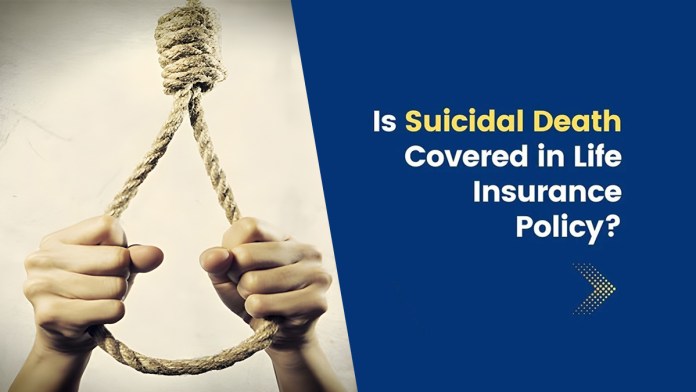Does life insurance pay for suicidal death? Does life insurance cover suicide? Different format, same question. Whichever way you inquire, I have got the answer you need. Besides, I know how difficult it can be to sometimes, steer through the intricacies of life insurance policies.

One of the most misunderstood and sensitive parts of these quotes is the question as to whether death benefits will be covered or paid out for death by suicide. However, this subject does not only require personal and emotional deliberation and contemplation. But it also affects the financial and legal realms as well. The environment governing life insurance, specific terms, and policy details need to be understood before you will find answers to this question.
Does Life Insurance Cover Suicide?
Here is what you need to know. If you have a life insurance policy, it doesn’t cover death by suicide during the first 2 years of the policy. But after that, you will begin to receive coverage. These two years of not being able to receive benefits are known as the Suicide Clause. You will understand this term better as you venture deeper.
On the other hand, if the policyholder dies by suicide, the suicide clause and contestability period expire. And in some cases, the life insurance quote, will give the death benefits to the beneficiaries. However, this is only if the premiums are paid and the policy is still active at the time of death. Meanwhile, keep in mind that laws and policies differ by insurance company and jurisdiction.
To sum up, always check and review the terms and conditions of an insurance policy before agreeing to or signing it.
How Does the Insurance Company Know If Someone Died by Suicide?
Insurance companies usually determine the cause of death through a complete review of death certificates, medical records, and, in some cases, police reports. These documents must be submitted as part of the claim process after the policyholder’s death.
Hence, if the documents show that the death was due to suicide, the insurance company will then review the claim against the terms of the policy to decide on the payout.
Life Insurance Death Benefits After Suicide
There are two main factors that affect the payments of death benefits for suicide cases. They are known as the Suicide Clause and the Contestability Period. What’s more, they are found mostly in life insurance quotes. Here are some things you need to know about them:
• Suicide Clause
The standard feature in many life insurance policies, the suicide clause, specifies that no death benefit will be paid if the policyholder’s death results from suicide within a certain period following the policy’s inception. This period typically ranges from one to two years but can vary depending on the policy and the jurisdiction.
• Contestability Period
This is a period (usually one or two years) after the policy is purchased during which the insurance company has the right to contest or deny a claim on the policy for various reasons, including misrepresentation or fraud. If a death by suicide occurs within this period, the insurer may investigate to ensure that the information provided at the time of application was accurate and truthful.
Thus, after the period has expired, the insurer or insurance company will pay out the death benefits to the policy’s beneficiaries, provided the premium payment is complete and in full.
FAQs
Are there any exceptions to these rules?
Exceptions depend on the individual policy and the laws of the state or country. Some policies might have specific exclusions or conditions related to mental health or previously diagnosed conditions.
What happens if the policy was purchased under false pretenses?
If it’s discovered during the contestability period that the policyholder provided false information or omitted significant details about their health or lifestyle, the insurance company may deny the claim, regardless of the cause of death.
How can beneficiaries file a claim if the death is ruled to be suicide?
Beneficiaries should submit a claim in the same way as they would for any other cause of death, including providing all required documentation. Transparency and thoroughness in this process are crucial.
Will the premiums be refunded if a death-by-suicide claim is denied?
In cases where a claim is denied based on the suicide clause or due to misrepresentation, most policies will refund the premiums paid into the policy to the beneficiaries, rather than the full death benefit.
What can beneficiaries do if a claim for suicidal death is denied?
If a claim is denied due to a suicide clause, beneficiaries can review the policy’s terms and the insurer’s reasoning. If they believe the decision was made in error, they can appeal the decision with the insurance company. Legal advice may be beneficial in navigating the appeal process.
It’s important for policyholders and beneficiaries to thoroughly understand the terms of their life insurance policy. They must understand how it addresses suicidal death, to set appropriate expectations and plan accordingly.



